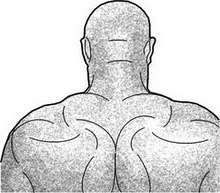 The following is the last article you will see by David Frum on this site. We are not exactly ideological soulmates, but when it comes to the dangers of this presidency we have found some common ground.
The following is the last article you will see by David Frum on this site. We are not exactly ideological soulmates, but when it comes to the dangers of this presidency we have found some common ground."Yesterday afternoon, Attorney General William Barr appeared on ABC to demand that President Donald Trump quit making him look bad. Trump’s tweets, the attorney general said, “made it impossible to do my job.” Barr has been intervening in cases in ways that work to protect the president. Those interventions become much more difficult when the president demands them—rather than trusting Barr to know what to do without being told.
At the law schools of the 1970s and ‘80s, a militant faction of professors taught a harsh lesson. Law, they argued, is a myth that property owners invoke to protect themselves and oppress those without property. The legal reasoning that we students were so frantically working to absorb was in fact a deception, an expensive drapery concealing the brute realties of political and class power.
Some students indignantly rejected this teaching. Others accepted that it contained some truth, mixed with much exaggeration and propaganda.
But young William Barr—George Washington University Law School, Class of 1977—seems to have absorbed the radical message with perverse enthusiasm: Alrighty then! Let’s do it!
As attorney general, Barr has focused on two missions: on the one hand, cracking down on crimes by the poor and the foreign-born; on the other, going easy on the crimes of President Trump’s associates. This administration likes to call itself “tough on crime” and to revile its Democratic opponents as “the party of crime.”
But toward its own many crimes, the Trump administration is genially indulgent. Like the gangsters around the table in the first Godfather movie, the Trump administration is able to convince itself that its victims are animals without souls—and that its own lawbreaking is a necessary, even honorable, accommodation to the facts of life. “The real crimes were on the other side!” Donald Trump tweeted after he heard the news of Roger Stone’s recommended sentence of seven to nine years—exactly in line with federal sentencing guidelines for Stone’s convicted offenses.
Another similar problem is the increasing number of district attorneys who have fashioned for themselves a new role of judge-legislator-prosecutor. These self-styled “social justice” reformers are refusing to enforce entire categories of law, including law against resisting police officers. In so doing, these DAs are putting everyone in danger.In a November lecture before the Federalist Society, Barr argued that issues of police motive or bias are irrelevant to the enforcement of law against ordinary people:
The Supreme Court has traditionally refused, across a wide variety of contexts, to inquire into the subjective motivation behind governmental action. To take the classic example, if a police officer has probable cause to initiate a traffic stop, his subjective motivations are irrelevant.In an October talk to Department of Justice employees, Barr spoke of the hardships endured in the pursuit of justice: “the long absences, the ever-present awareness of the risks.” But those hardships, he said, are required to sustain “a society where the law will be enforced and your fellow citizens will be protected.”
At the same time as Barr was pronouncing these stern words, however, he was also shrewdly rejiggering his department to enable him to do special favors for criminals of the highest rank.
When Barr was confirmed as attorney general on February 14, 2019, the Trump presidency faced two imminent prosecutorial threats: Robert Mueller’s special-counsel investigation and the office of the U.S. attorney for the District of Columbia. Barr promptly moved to neutralize both.
First, he attacked Mueller. He took early possession of the Mueller report and held it for almost a month while publicly mischaracterizing its findings. Four weeks after the report’s release, Mueller resigned and Barr closed the special counsel’s office, moving all its remaining prosecutorial work to the U.S. attorney for the District of Columbia.
That office was headed by a prosecutor independent of the Trump administration, Jessie Liu. Liu was then deftly moved aside. In December, President Trump nominated her for an important job at the U.S. Treasury. Liu resigned on February 1. To fill Liu’s place, Barr turned to one of his closest aides, Timothy Shea, who was appointed to head the office on an interim basis. Once Shea was installed, Liu’s nomination was withdrawn.
These maneuvers have enabled Barr to bestow leniency upon Trump cronies convicted of crimes." [The entire article is here.]
When Americans finally realize that there has been a total takeover of the institutional norms and the rule of law in America, it will be too late. It happened before (See the civil rights struggles of the fifties and sixties.), and it will happen again.




















200 comments:
Post a Comment